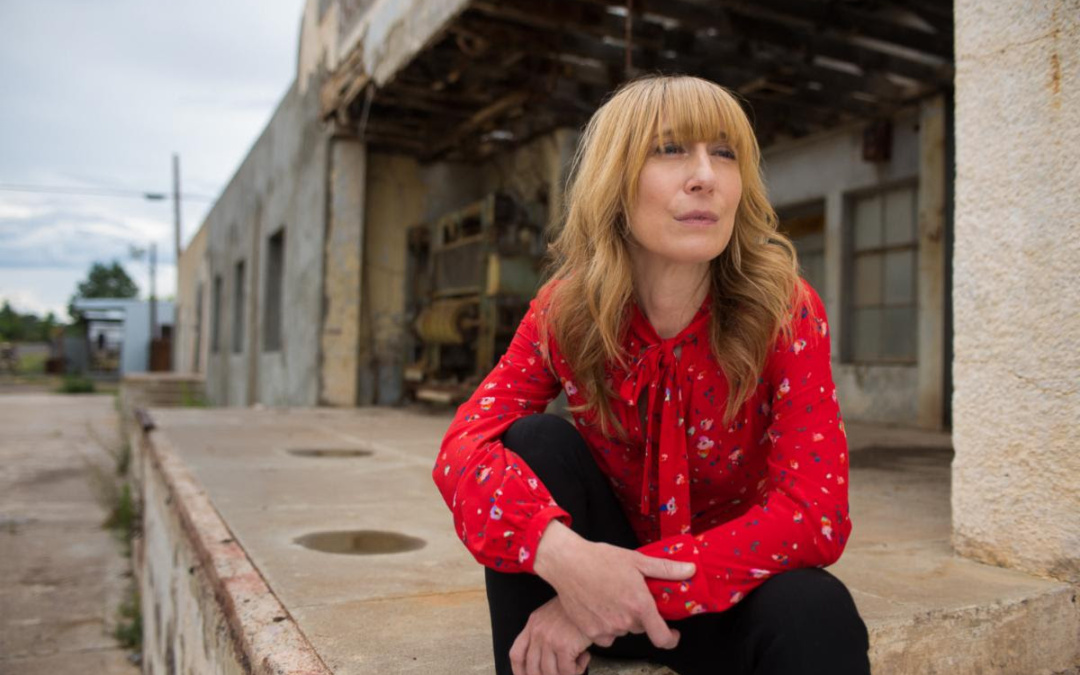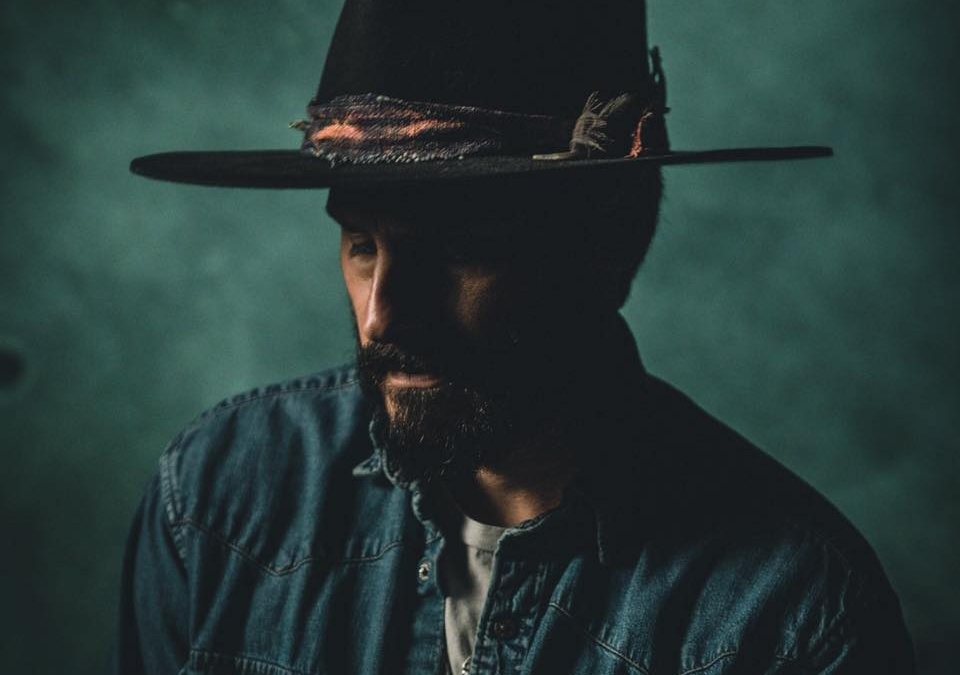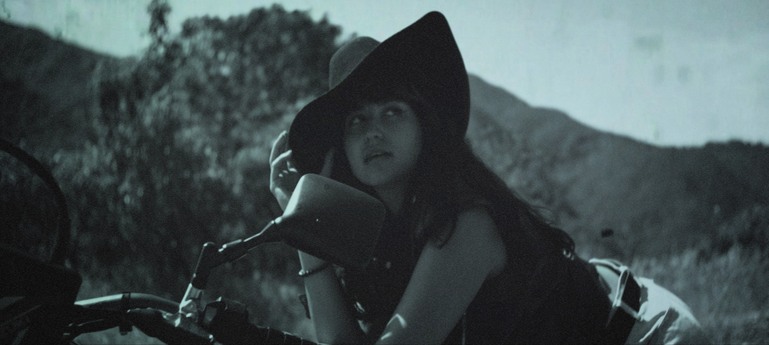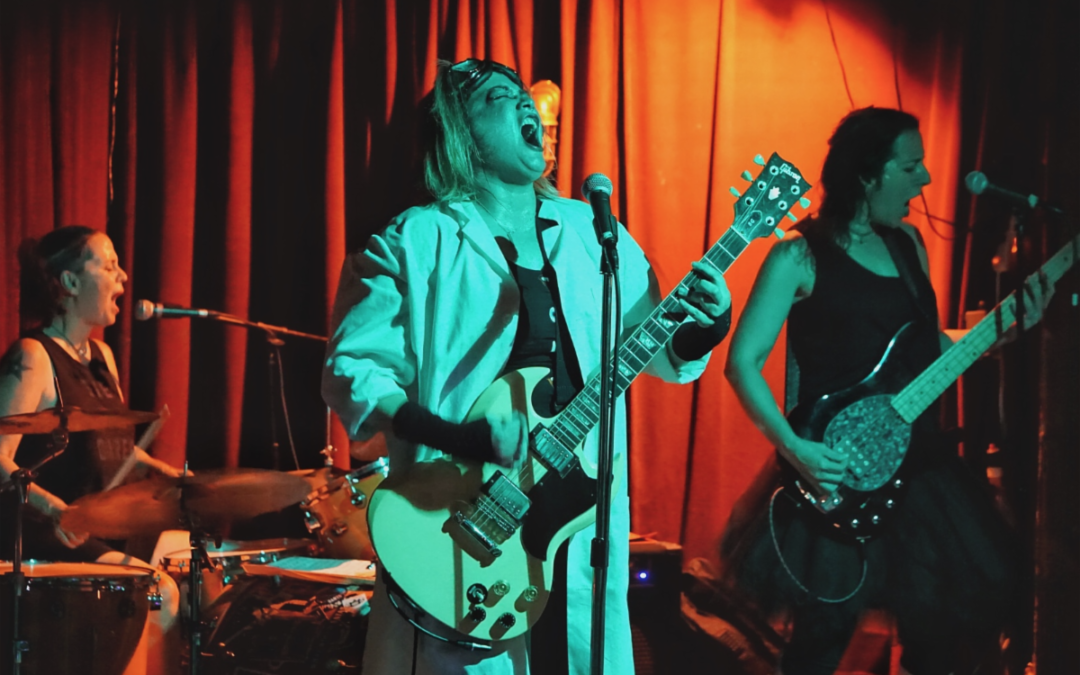
by Katy Mombourquette | Jul 13, 2020 | singles, wolf tracks
Cincinnati, 2003. “Heartless Bastards” was incorrectly answered when a multiple-choice trivia game question asked, “What is the name of Tom Petty’s backing band?” From this amusing origin Erika Wennerstrom’s band “Heartless Bastards” was born. It began as a recording project but eventually evolved into a live band backed by a revolving collection of musicians. After playing regularly in the Midwest, Heartless Bastards got into the game when Patrick Carney of the Black Keys was taken with the band and passed on their demo to his label at the time, Fat Possum Records. By 2009 David Colvin, Jesse Ebaugh, and Mark Nathan had joined on drums, bass, and guitar to complete the group. Between 2009 and 2015 the 4-piece recorded several critically acclaimed albums, but for the last 5 years, fans have been craving something new. Well, some good news: the wait is finally over! Heartless Bastards are back in the studio to record an album featuring the same tried and true musicality that their fans have come to know and love: Wennerstrom’s paradoxical vocals that simultaneously exist in the planes of sweetness and intimacy but also grit and depth, and the band’s smoky blues sound.
Wennerstroms describes “Revolution” as a lesson in self-love and how it’s the key to a more tolerant society. She believes that humanity needs to learn how to be satisfied with less and to stop needing to feel like they’re better than others in order to validate themselves. For her, “Revolution” is both a mantra and a reminder for herself to avoid playing the commercialism-driven game and to focus on connecting and helping people rather than “beating” them at this game. She states “Dave Chapelle said at a show years ago “Poverty is a state of mind.” That really stuck with me. I was in the Amazon several years ago, and it struck me how little people had materially, and children were running around and they all seemed so happy. Aside from the basic necessities of sustaining our lives I think giving and receiving love is really what we need the most. All the rest is just a bunch of noise.”
“Revolution”, however, is anything but noise. It begins with a soft acoustic guitar that rivals the passionate title. Then it builds steadily, layering heavy guitar and marching band-like drums under Wennerstrom’s unique vocals that remind one of Colin Meloy (The Decemberists). It continues on like this until it revolts into this classic blues-rock song decorated with short guitar licks. The chorus’ recurrent phrase “the Revolution is in your mind” recalls the quote from Chapelle, “Poverty is a state of mind,” perhaps nodding to its sentiment. This is a song that is immediately gratifying on the first listen, but if you dig a little deeper there’s a whole lot of insight to be found.
The track is out on Bandcamp, and a portion of the proceeds will be going to the ACLU in support of civil rights. Listen here!

by Katy Mombourquette | Jul 10, 2020 | albums, review
Here to write anthems for future generations, multi-instrumentalist Michael Desmond inspires the people of the world to march to the beat of their own drum with his forthcoming EP Local Nomad. The EP is part of Desmond’s project, also called Local Nomad. He gives insight into the dichotomous name by saying “Local Nomad is the resistance of sedentary life. It’s about seeking the strange and embracing the unknown. Wondering. Wandering. Young and Old. Everywhere and Nowhere.” Desmond plays every instrument on the EP excluding drums. He draws from a variety of sources including Tears for Fears, Elvis Costello, and Phil Collins to produce a fusion of indie-pop and alt-rock with soulful vocals, heavenly synths, and lustrous drum beats. Originally from Long Island, NY, Desmond began his career as the frontman of the orchestral indie rock band Gabriel the Marine. The band found success and performed with bands like Taking Back Sunday, Glassjaw, Mew, Jacks Mannequin, and The Dear Hunter. However, after going through a period of rapid change in which he graduated from college, ended a long term relationship, and watched a family member tragically pass away, Desmond’s mind was racing a mile a minute. The only way he could slow things down was to write, and thus Local Nomad was born as a snapshot of life during this unstable time.
While Local Nomad is worth listening to for Desmond’s expert and fascinating use of instruments to create an array of idiosyncrasies within each track, there are also captivating overarching qualities that will intrigue even those who might want to listen passively.
The anger-fueled opening bop “Love is Gone” and rueful “Young Vampires” are “explosion” songs. “Love is Gone” keeps things chill with an alluringly groovy bassline in the verses, before erupting into sound in the chorus. It’s vocal line is compelling and surprising, you find yourself listening intensely to see what will come next. “Young Vampires” is about a toxic relationship, turning each other into vampires– monsters. It displays wistful guitar in the verses but also has a sonic explosion in the chorus.
“Gates” and “Getting Old is a Bitch” are more self-contained, but each have a quiet, yet powerful energy. The contagious beat in the chorus of “Gates” leaves you no choice but to jam along. All of the instrument parts in “Getting Old is a Bitch” are pertinent to the feeling of getting old. It also has a dominant bass beat and riff that hits you hard, much like growing up does. The “do-do-do”’s in the background almost sound like they’re taunting each of the melancholic main lines. Turmoil and instability in the distorted guitar solo reflects how it feels as the world seems to be moving on without you.
Finally, we have those songs that “clash,” although their conflicting elements end up working to their advantage. “Gates” elevates the sound to a celestial sphere with ethereal synths, but at the same time, the hearty guitar brings things back down, adding a wholesome, down-to-earth quality. A great guitar riff comes in towards the end, but it has that heavy rock sound to it, providing a deep contrast with the synth. The clash in “Summertime”, on the other hand, comes from the happy-go-lucky synth harmonies set against the wistfulness of days gone by in the lyrics. It’s about young adults trying to keep up with life and thinking back on the naivety of their youth. With the beat, sunny harmonies, and fluttering synths, you find yourself thrown back into a summer from years ago, tinged with nostalgia and regret. These tracks are dichotomies, much like the name Local Nomad itself, and the crunch between their conflicting qualities make them ever-so satisfying to listen to.
There’s a lot of potential in Local Nomad to discover more unique elements in the tracks, but no matter what you’re guaranteed to hear some anthems with great beats, full, well-rounded choruses, and colourful instrumentation. The EP will be released on July 10, 2020, but some of the singles are available to stream now!

by Katy Mombourquette | Jul 9, 2020 | singles, wolf tracks
Toronto-based producer, songwriter, and singer Kennen first wrote “City Lights” at 16, but recently decided to use his production talents to really bring the song to life. It depicts an idealistic romance– the picture-perfect relationship that eludes him even now. Thick textured, soft-edged samples create this sense of complete ease under city lights and the night sky. The young artist shares that as someone who feels like he’s missing out on those “main-character moments” you see in coming-of-age films, that “City Lights” is a chance for himself and his listeners to immerse themselves in a life of young and carefree moments, if only for 3 minutes. One thing that caught my ear is that the music, even Kennen’s voice, sounds somewhat removed, creating the dreaminess of an imagined scenario. Aside from the imagery and mood, there are several features in the track to listen for, one being the stop and go music around the chorus, creating a beat in the silences. It gives the effect of a Tokyo street, at peace in the nighttime, and basking in the soft glow of the stars.
Don’t miss out on this charming piece of musical cinema, and listen to “City Lights” on your preferred platform.

by Katy Mombourquette | Jul 8, 2020 | albums, review, wolf tracks
Dive into the raw innermost thoughts of Michael McArthur with his profoundly personal EP Oh, Sedona. Over a decade ago McArthur gave up his stake in the bistro he owned with his brother and left to pursue music. His career launched swiftly, but as he was playing cross-country tours, alone or with an ensemble as large as the Imperial Symphony Orchestra, he grew closer to losing himself, and farther away from his wife. After 8 active years he brought things to a halt to rebuild his marriage and himself. Incidentally, he sparked one of his most creative bouts thus far. The result was his acclaimed 2019 album Ever Green, Ever Rain, which was the first release on his own label, Dark River Records.
On Oh, Sedona and his other EP that is still to come, How to Fall in Love, McArthur offers some acoustic renditions of songs from Ever Green, Ever Rain such as “We Live & We Die”, and “Wild in the Blood”, but keeps things fresh with new tracks as well. A man who has always used songwriting as a form of therapy, McArthur’s music is a lifeline that he is tossing out into the world for anyone who might need a hand, especially in a time when the physical connection of a live concert isn’t possible. That being said, he also wanted the recordings to imitate how songs take shape in a live setting: “Performed in the way that I wrote them, there’s something about the uncovering of a song that invites you to reach down a little deeper. To listen with both ears. To be at ease.” The introspective artist says that the integrity of the songs depends on them being revealed in their most fundamental form. The title track, “Oh Sedona”, is written in remembrance of his recently departed grandmother and her influence on his life, whose funeral has unfortunately been postponed indefinitely due to the pandemic. The song puts this immeasurably mournful experience into a different light. McArthur says “You can’t know the importance of a funeral, of that collective remembering, the final farewell, until you’ve attended one, or until you’re unable to.” It’s this kind of heavy emotion that unifies the EP, and invites the listener to dig deep.
While emotion is the glue that holds Oh, Sedona together, McArthur’s voice is undoubtedly the crowning feature. It is in many ways the quintessential American folk voice, tinged with vibrato, earthy and absolutely gorgeous. Honestly, I could go on and on about it. “Oh, Sedona” first showcases the powerful conviction that is ubiquitous in the vocals of all of the tracks. The ends of his falsetto lines in “We Live & We Die”, “Wild in the Blood”, and “Elaine” diffuse into the silences, like a breath of relief. “We Live & We Die” as well as “Elaine” also highlight his lower, more robust voice which is equally potent.
Despite being closely intertwined, each of the four original tracks have something unique to offer. The idea of not being able to say goodbye in “Oh, Sedona” gives it a heartbreaking intimacy that intensifies in the middle of the song before coming back down to rest, quietly melancholic. The entire tune is so down to earth, from the unplugged sound to the harmonica to the open-hearted subject. “We Live & We Die” begins with some intriguing rubato guitar picking and yearning suspended chords that build the tension until the pain consumes McArthur at the end, sending shivers down your spine. “Wild in the Blood” sneaks up on you. It has this sweeping sadness that you don’t notice is building up until it overtakes you. “Elaine” features touching lyrics whose intimacy and tenderness is deepened by the name in the title.
The cover of Prince’s “Purple Rain” deserves its own consideration. Piano, drums, synth strings, and various other instruments create the grand slow-jam feel of the 8 minute long original tune. It features a guitar solo, soulful harmonies, and Prince’s unmatched voice. McArthur completely strips it down, cutting out 4 minutes and trading in all the instruments for acoustic guitar. It’s completely his own take. The soul is still there, but instead of McArthur trying to simulate Prince’s soul, it’s McArthur using the original song’s words and melodies to bare his own soul. He exchanges the epic slow-jam feel for his token sincere and intimate sound, allowing the cover to adopt the same tone as the rest of the EP.
Oh, Sedona is a raw, genuine expression of poignancy, and worth feeling vulnerable for. It’s available on all major streaming services, as will How to Fall in Love on August 14th, 2020.
Keep up with Michael McArthur here.

by Katy Mombourquette | Jul 7, 2020 | singles, wolf tracks
When L.A. born singer-songwriter Niki Black wrote her new single “American Spirits” back in September of 2019, she had no idea how prophetic her words were. The track was originally supposed to be a contemplative look back at her American experience as she prepared to move to Paris to pursue a master’s in philosophy and art history. All throughout this past year, she has been releasing singles from her highly anticipated album LILITH, but she was saving “American Spirits.” After the recent events that transpired in the US, she decided to release this one-off single because, as Nina Simone once mused, “it’s an artist’s duty to reflect the times.” The result? A poignant commentary on American today which answers the questions “What does it mean to have American spirit?” and “Can I still connect with my American Spirits as the daughter of an Iranian immigrant mother?” by saying “Yes, I can and I will,” but not without confronting America’s “bloody conception and its chaotic, violent reality today.”
Although originally from L.A., Black’s father grew up in Chicago, and her mother in Iran, giving her an expansive range of influences to work with, from the blues to the sounds of Iranian pop legend Googoosh. The uniqueness of her “ahs” in “American Spirits” in particular points to this mixed heritage of hers, but reverberations of it are felt throughout. Otherworldliness and ambiance emanate from the transient song, which doesn’t seem to exist within the bounds of genre or time itself. The thing that gives Black an edge, however, is her voice, ringing out sweet but striking. Her words pack a punch of their own, too. “Useless conversations all across the nation,” “violence in our lungs, black as the paths we come from,” are more significant now than ever before. If you weren’t planning to already, I recommend listening to the track with headphones, to better experience the atmosphere and audio panning that fully immerse you within the song. Stream “American Spirits” here, and stay tuned for the official music video (watch the teaser here) which will be released later this month!

by Katy Mombourquette | Jul 2, 2020 | singles, wolf tracks
A true nomad, Evelyn Cools has found herself exploring the world all throughout her life. As a child in Belgium she studied piano, flute, choir, and musical theater. Eventually, she made her way over to Hong Kong and Budapest. At her university in London, Cools found herself captivated by the music scene and made some musical friends, and together these things provided the foundation for her career. Finally, in 2018 she moved to Los Angeles. Inspired by the nature of California, the new people she met that would eventually become her creative team, and the unparalleled love she found, Cools decided to bring to life her upcoming EP Misfit Paradise. Her penchant for wandering and connection to other people and nature are the driving forces behind this record.
Regarding Misfit Paradise, Cools says that it “explores the complex relationships we have with ourselves, others, and our environment, and how we find peace and meaning within it all. It is about life’s greatest joys – love, acceptance, nature, adventure – but also its greatest sorrows. It aims to capture little specs of magic against a world of unknowns.”
Her new single off the EP, “Gold Woman”, reflects some of the qualities that you can expect to hear in Misfit Paradise. Cools‘ personal songwriting is enchanting, with her ethereal voice and strong emotional resonance. Her sound lies somewhere within folk, indie-folk, alt-country, and folk-pop music. That being said, don’t think that the single is simply a girl fingerpicking a guitar and singing simple melodies. This music grabs you and commands you to listen to it. You can definitely hear undercurrents of country, but overall this track sounds a lot like alt-rock. It places a strong emphasis on the guitar which has a heavier quality to it. On top of this, amidst countless songs today which are making heavy use of harmonies (although fabulous in their own way), Cools isn’t afraid to let her voice stand on its own. She shows impressive control over her robust chest voice and delightfully airy head voice, both of which are showcased in the adventurous vocal lines throughout the song. Her accessible lyrics and storytelling abilities reveal her folk roots, however, reinforcing who she is at her core.

by Katy Mombourquette | Jul 1, 2020 | singles, wolf tracks
Some may feel as though the music of today lacks the fire and fervor which used to be so plentiful in music from days gone by. If you find yourself agreeing with that sentiment, then let spunky girl group Drama Dolls fill that void with their new single “Favorite Girl.” The LA based band produces rampant brat-punk music that has the grit and energy of the Misfits and the Ramones, but also the musicality and power of the Bangles and the Go-Go’s. The single will be on the group’s upcoming EP Over The Shoulder / Boulder Holder which was recorded at the legendary Larrabee Studios, the same place where the Foo Fighters, Blink-182, Tool, and countless other iconic artists recorded their music.
When asked about the meaning behind the track, Drama Dolls stated (somewhat cryptically) “WE WANT TO BE THE GIRLS WITH THE MOST CAKE.” While you make sense of that, settle into the nostalgia of “Favorite Girl” and feel its energy seep into your veins. Right away you hear the rugged guitar, and the punchy drums remind the listener of the opening drums in The Go-Go’s “Vacation.” The lead vocals are bold and full-bodied, sounding both fresh and familiar. The high energy established at the beginning of the track is further magnified by the key change in the courses. It culminates in the instrumental bridge/interlude that hits you with rapid-fire drums and heavy, distorted guitars. The reverberating harmonies after the final chorus are like a choir in a resonant church: resounding, and glorious. With its spirit and spunk, “Favorite Girl” is loads of fun and definitely one to rock out to.

by Katy Mombourquette | Jun 26, 2020 | albums, review
She was born in Flushing, Queens and raised by a pack of cigarettes. With only four chords to remember her mother by, she took her love of vintage guitars, muscle cars, and old man bars and pursued music without ever looking back. She sang lead vocals for Gary Lucas’ Gods & Monsters, and opened for Bob Dylan and Paul Simon at Jones Beach Amphitheater with her band Eudora. After taking a break to grow, get married and raise some lovely kids, she turned once again to music in 2015 to release her debut solo album Go Tell Your Friends. She is Emily Duff. A wife, mother, and artist who managed to find happiness and become a role model despite never really having one herself. A couple more albums and some TV and film projects later, she is now looking back at the past with the confidence and wisdom from motherhood and marriage in her new record Born on the Ground.
This illustrious musician sings nine “love” songs that represent nine different breakups from her past. With time and self-love, she looks back on these experiences without anger, instead, she wants to examine them with the maturity she has gained. While the songs on Born on the Ground refer to Duff’s past relationships, she points out that breakups aren’t always romantic, one can break up with friends, careers, and even bad habits. They’re hard, but they can be the seed that turns into a better understanding of yourself. The universality of what Duff is discussing is reflected in Born on the Ground. Her songwriting shows an expert command over the genres of country, roots, soul, and rock and as a result, the album is a well crafted, classic set of accessible songs. Rock and blues are established by the drums, country is brought in by Duff’s voice, and the bass, guitar, and keys drift in between. Her sensitive lyrics are graced with sophisticated metaphors, and there’s a guitar solo in every song.
Some tracks are more straightforward, like the opener “We Ain’t Goin’ Nowhere”, with the line “Oh honey get off the train, we ain’t goin’ nowhere” talking about a dead end relationship. It has a bluesy-rock sound to it from the piano and underlying harmonies, but it also has a kind of deep earthiness to it. “There Is A Way Out” urges someone to deflate their ego, telling them that they don’t have to be so self centered. Lines from “Knuckle Sandwich” such as “how ‘bout my fist down your throat” and “how’d you like if I opened up a can of whoop-ass” make her message crystal clear. “Forever Love” tells of a supposedly undying love that ended anyway. But accessible as they are, these songs are far from boring. “There Is A Way Out” has a fun piano solo and the bridge is almost anthemic with its full harmonies, cymbal crashes, and guitar solo. “Knuckle Sandwich” is just an explosion of energy, driven by the spirited guitar, supported by the drums and ornamented by the lightning-fast piano glissandos. It contains itself just for a moment towards the middle of the track only to come back stronger, with unbridled energy that persists right to the end. “Forever Love” is pretty classic in its blues/country sound. Yet it has almost gospel-like harmonies in the chorus, which has this congregational sound to it that compels you to sing along with it. The clarity of these songs creates a sense of knowing between you and them.
The rest of the songs on Born on the Ground are more puzzling. The title track has some ambiguous lyrics such as “Put on my favourite red party dress, and dance with the devil in five-inch heels” and “when you’re born on the ground, you’re dead inside.” The bass in particular but also the mood of the song in general has a darkness to it, suggesting that something may be going on underneath the surface. In a similar way, “No Escape” hints at something alluring, from the 1920’s blues club feel of the music to Duff’s sultry voice. But the electric organ and lyrics like “I would do most anything if you would only disappear” denote something sinister– right down to the expressive ending. “Something Sexy” has a classic rhythm guitar part and a strong country vibe, and the lyrics chide someone for not understanding a “phenomenal” girl. Perhaps the girl in question is Duff herself, looking back at a relationship with a renewed sense of self-worth… but perhaps it means something else entirely. “Killer” still has the same kind of sound as the others, but it also has a wistful quality from the fuzzy bass, electric piano and held chords that soften it. Duff sings “there’s a killer among us, tearing at this happy ending.” It’s unclear what exactly is going on, but seems as though there’s something poisoning her relationship. The final track, “Easy Go!” has a fun rhythm in the guitar, which is great for bringing ‘er home. The lyrics seem to be about warning someone not to love her, “lovin’ me’s like diving into flames,” but at the same time implores her lover not to haunt her.
The songs that you find puzzling and straightforward might be different from mine, but no matter how you interpret it you can expect Born on the Ground to be both relatable and thought-provoking. There’s more to this album than meets the eye, much like Emily Duff herself.
Produced by Eric “Roscoe” Ambel, and recorded live in Brooklyn featuring the Emily Duff band and guests Eric Ambel on guitars and vocals & Syd Straw, Mary Lee Kortes & Tricia Scotti on background vocals, Born on the Ground will be released on June 26th. You can also see Duff doing her “virus escape” live stream from her Hudson street fire escape every Sunday at 4 PM EST on her Facebook page, and watch the video for “We Ain’t Goin’ Nowhere” here.

by Katy Mombourquette | Jun 25, 2020 | albums, review
Brooklyn based trio Holy Hive pairs transient harmonies and Paul Spring’s exceptional falsetto with poetic lyrics in their tranquil debut album Float Back To You. Following their acclaimed EP Harping and successful live shows, Holy Hive combines Spring’s folk guitar playing, Homer Steinweiss’ precise drums and Joe Harrison’s grounding bass to create their soulful, vintage sound. The album also features several guest musicians, including Mary Lattimore on the harp, Leon Michels on saxophone and keys, Shannon Wise on backing vocals, Dave Guy on trumpet, Nick Movshon on bass, and Spring’s wife Sophia Heymans on the piano. Each of these talented musicians brings something unique to the table, pushing Float Back To You passed the boundary of a simple folk or soul album.
While generally, the album is laden with dreamy harmonies and jazzy drums and bass, each of the songs also brings their own individual flair. “Broom”, “Hypnosis”, “Blue Light”, and “Float Back To You” each use the dreamy sound to their advantage. “Broom” parlays the hazy harmonies into a smooth brass interlude. “Hypnosis” uses them along with harp and electric piano to create a mesmerizing sound. “Blue Light” sounds like lounge music and has a pensive, wistful mood to it. The harmonies in the title track “Float Back To You” serve to augment the potent feeling of longing within it. These tunes all feel suspended in the air, but each in subtly different ways.
Other songs on Float Back To You take on a more unique persona and use surprising harmonies to pique your interest. “Oh I Miss Her So” is undoubtedly a standout track. Its whimsical use of harp sounds like something out of a fairy tale, and the unexpected harmonic changes are enchanting. The beginning of the song floats into the sky, but then the drums bring it back down to earth and drive a gentle groove. “Red Is The Rose”, on the other hand, is more mysterious, and carries with it undertones of sadness. It is a reimagining of an Irish folk tune, and the mystical music really plays into that folklore element. “Embers to Ash” also has a darker, almost spooky tone to it created by the electric organ and phantom-like keys. The concluding track on the album, “Sophia’s Part”, begins with discordant piano notes, yet the clash isn’t unpleasant. In fact, as the motive repeats it slowly becomes pleasingly crunchy. All of the instruments in this song seem to be completely in their own world, yet somehow the song remains cohesive and satisfying.
Paralleling one another both in title and in sound, “Be Thou By My Side” and “You Will Always Be By My Side Forever” are two love songs that feel more like classic folk. “Be Thou By My Side” features some beautiful guitar picking and is simple, tender, and infused with love. “You Will Always Be By My Side Forever” has more going on, but still has a folk quality to it. While its music is somewhat sparse, it gets the message across, and the sax and jazz organ outro prolong the easy vibe of this track to ease you into the final song.









